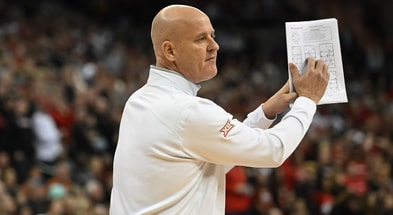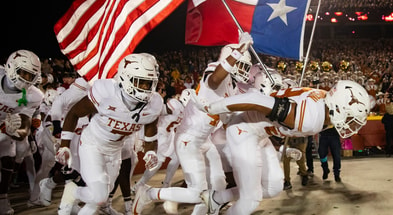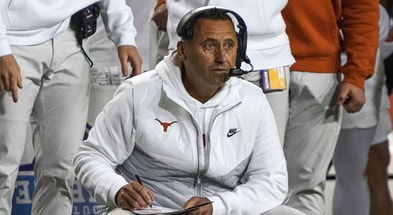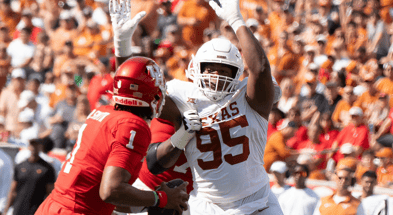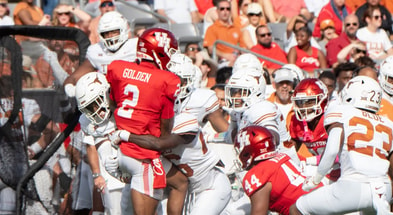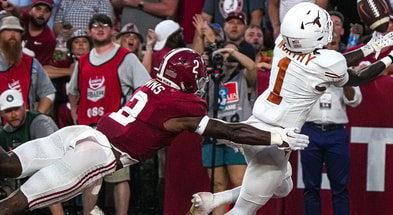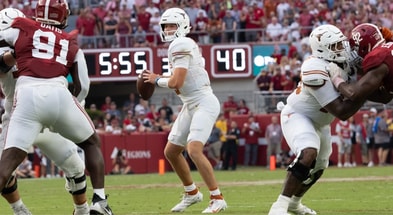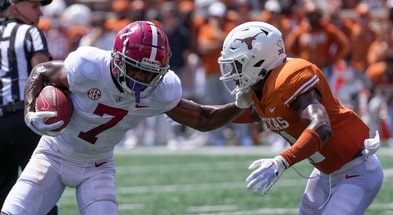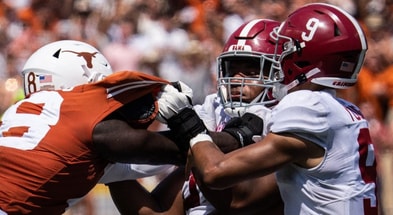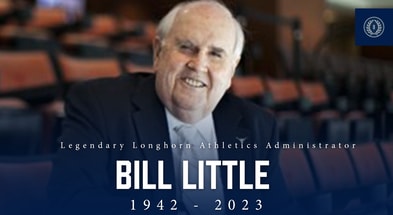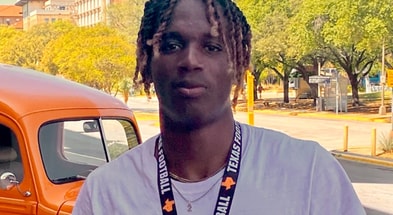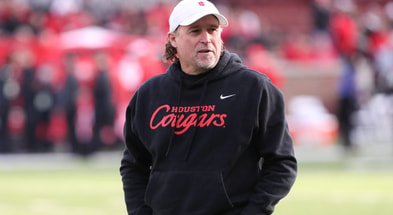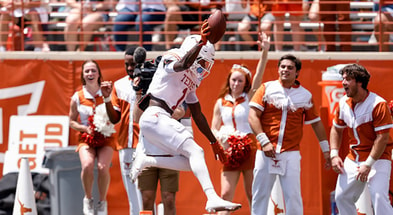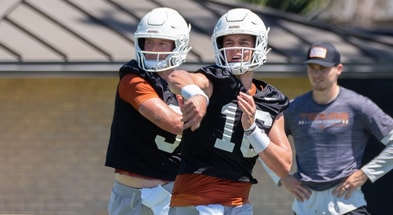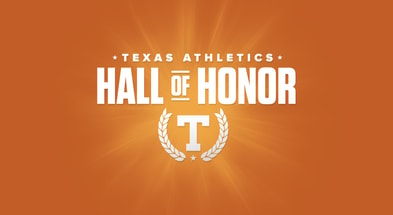What's next for TCU and Texas Tech?
I think we’d have to say this coaching search hasn’t had a very auspicious start for the Texas Tech Red Raiders.
The warning sign occurred when they fired Matt Wells and it was initially reported by the Fort Worth Star-Telegram. It smelled like a warning on the TCU side, “hey, Tech is about to get going on chasing the most promising coach who’d be interesting and qualified to lead a Big 12 program based in Texas and dependent on the DFW Metroplex.”
Sure enough, TCU was agreeing to “mutually part ways” with institutional figure Gary Patterson six days later.
Now the race is on.
Opening moves
One of the big early prizes to be pursued was UTSA’s Jeff Traylor. Here at Inside Texas we’re pretty familiar with Traylor because he coached a Gilmer High team to a State Championship under the watchful eye of East Texan Justin Wells and the team included a pair of future Longhorns in Kris and DeMarco Boyd along with future Bear Blake Lynch.
From there he was an important assistant for Charlie Strong, helping to rework the offense after a disastrous year one with Shawn Watson and Tyrone Swoopes and serving as a lead recruiter on several important wins. In year three he worked with new offensive coordinator Sterlin Gilbert and offensive line coach Matt Mattox in the “veer and shoot.” The tandem of Mattox and Traylor proved to be one of the only strong features of the team, Traylor coached the tight ends (featuring converted defensive end Caleb Bluiett and converted linebacker Andrew Beck) and they paved a path for D’Onta Foreman to run for over 2,000 yards.
A few years later Mattox was one of his big hires at UTSA. Year one for the Roadrunners under Traylor was powered by a solid 3-4 defense (akin to the Gilmer scheme) and Sincere McCormick running for 1,467 yards at 5.9 ypc with 11 touchdowns. In 2021 they’re undefeated and McCormick has 891 yards at 4.7 ypc with nine scores. You can’t retain a star offensive line coach for long in this business, nor any other good staffers, which made a Traylor move to Tech or TCU seem very likely. At those schools he could better afford to pay good assistants.
Instead, UTSA ponied up for a contract extension, more money, and more resources and Traylor signed it. It appears unlikely either Tech or TCU will secure his services. Now what?
Who else projects to be a good coach at this level who could help TCU or Texas Tech build a program by recruiting the DFW Metroplex high schools and perhaps former DFW Metroplex players who show up in the portal?
Sonny Dykes of SMU.
Tech vs TCU for Sonny Dykes
SMU was left out in the realignment carousel. There was little reason for TCU, Texas Tech, or Baylor to be interested in adding ANOTHER Metroplex program, particularly one who was starting to get over on them in recruiting and branding. For Sonny Dykes though, it had to make the SMU job less appealing than it had been previously.
Your rival Houston is joining the Big 12 where the non-Texas/A&M Universities will battle annually for Lone Star supremacy and you have to sit back and watch? Or battle Traylor’s Roadrunners for a 3rd tier title? Doesn’t sound so great.
Dykes came up the coaching ladder under the Pirate Mike Leach in Kentucky and then out in Waco before striking out on his own as an offensive coordinator and quickly as a head coach. He did a nice job at Louisiana Tech and parlayed it into the Cal head coaching job, where he turned Jared Goff into a no. 1 overall draft pick. Dykes hated it at Cal though and was fired while actively looking for a new job. He took an analyst position with Gary Patterson and TCU for a year before grabbing the SMU job when Chad Morris left.
The one year he helped Patterson? The 2017 season, the only bright spot for the Frogs in the last six seasons.
For the last few years, Dykes has been proving his bonafides in three dimensions:
- Building RPO spread-I offenses with true run/pass conflict and big play potential.
- Recruiting transfer quarterbacks from the portal and successfully plugging them into the offense.
- Recruiting the Metroplex and actually getting talented Dallas players to SMU (more on this in a moment).
- Using the transfer portal to add high caliber, blue chip talents which are hard to recruit to the G5 out of high school.
Where does all this transfer best? TCU or Texas Tech? It could probably work at either.
The only tricky part here for Texas Tech is the portal and the DFW part. Which is a more attractive destination for a 2nd string quarterback from Texas who is looking for a chance to start, Lubbock or Fort Worth? Given how many of those players are from the Metroplex, the answer is plainly TCU.
Obviously Texas Tech was able to grab Tyler Shough from the portal with Sonny Cumbie so it’s not impossible or even unlikely, but the Fort is a ready-made stronghold akin to SMU.
Recruiting Dallas has been achieved in large part by Dykes hiring Ra’Shaad Samples, who’s the son of a South Dallas coaching patriarch in Duncanville head coach Reggie Samples. Dykes has repeatedly proven himself a good judge of staffing talent (Rhett Lashlee, Garrett Riley, Samples) but Samples is a special recruiting with all kinds of connections in the Metroplex. If Dykes can convince him to come with him to the next gig, everything sets up nicely for continuing the operation.
The easiest way to keep the same machine in fine working order is to simply relocate to the Fort. There are TONS of rumblings that exactly this is going to happen.
And the phrasing of Athletic Director Jeremiah Donati’s comments at his press conference after the announcement of Gary Patterson’s resignation…
Often when an administration moves to replace a coach, especially a legendary coach with a statue like Gary Patterson, they already have something in the works to replace him.
Texas Tech had every reason to push out Matt Wells, who had zero political capital or standing in Lubbock, to get a head start on TCU in the coaching search. TCU would probably rather not have moved off Patterson before having a good idea of how to replace him.
Let’s assume, and we could be wrong, that TCU is going to win the battle against Texas Tech for the services of Sonny Dykes. What’s next for the Red Raiders?
What should Texas Tech do???
Sometimes having to do a protracted search is the best thing for a University. The anointed, slam dunk, ascendant option may or may not translate to your context. Sometimes you just get cornered into making the move because the stars are aligning when in fact, it’s not the best option.
In considering the best fit for Tech, let’s consider some of the following facts.
- They’ve had a Mike Leach disciple coordinating the offense for the entire century. Every. Single. Year.
- Tech has not given up less than 30 ppg on defense since Leach left.
- Tech has scored 30 ppg ever year since Leach left save for 2020, when they averaged 29.1.
There’s a popular push to go try and hire Mike Leach back. This just makes a certain amount of sense and like many people, I’d find that pretty enjoyable.
Leach quietly is easier on defensive coordinators than many of his predecessors because his offense uses fewer RPOs and shots and tends to control the ball more. Leach’s big emphasis as an offensive coach is empowering his quarterback to control the game on the field whereas a lot of his former assistants and other spread coaches like to dial up shots and score tons of points while trying to control the game themselves.
He’s also simply a good coach who has a wildly underrated knack for hiring assistants. Ruffin McNeil was a better defensive coach than any who’s come through Lubbock since, he hired Alex Grinch at Washington State, and his current defensive coordinator Zach Arnett is another rising star.
Mike Leach is a great head football coach. Period.
Tech needs someone who can oversee an overall program and work out how to field balanced, competitive rosters while recruiting from a similar pool as Baylor, TCU, and Oklahoma State.
Here’s the Leach approach:
- Recruit players who fit your system, which is a little different and needn’t necessarily overlap with these private school rivals.
- Emphasize coaching and development. The good Tech defenses in 2008 and 2009 had one 4-star between them but loads of good pass-rushing from 2-star edge defenders McNeil developed. His Cover 2 system gave them a mold to recruit and develop toward.
- Teach your quarterback to control games with the passing game and offense, Leach wasn’t just chasing shootouts all the time.
To match the achievements of Leach, who has proceeded to follow this formula to successful seasons in two other rural locales since, they need either Leach or someone with a similar mind (well, not a similar MIND per say, that may not exist on this planet) for overall program building and strategy.
A popular choice here is Joey McGuire, a former high school coach who has been a star on the Matt Rhule and Dave Aranda staffs for his connections to players and recruiting prowess. I think McGuire would be a really interesting choice, but he might be a better fit for the potential SMU vacancy than head coach at Texas Tech.
Texas Tech’s strengths as a program are more in their resources and fan support than their recruiting profile. Out-recruiting TCU and Baylor is going to be tough, they struggled to do so against Gary Patterson and he was hardly a brilliant recruiter with a staff of recruiting all-stars. McGuire seems like a cleaner fit to match the Dykes formula at SMU than at Tech and his resume is a bit thin.
I think going with the “let’s hire a good coach with a knack for hiring staff and playing complimentary football” is the better call. Technically that’s what Gary Patterson, who is perhaps available, was trying to do at TCU. Problem is he wasn’t very good at it, not as good as Mike Leach has been nor Mike Gundy. @ me if you want, it’s just the truth.
Matt Wells seemed to fit this mold but his defensive approach was terrible and their success with it in the Mountain West was fool’s gold.
It’ll be interesting to see how Tech’s administration sees things and what’s coming down the pipe.
